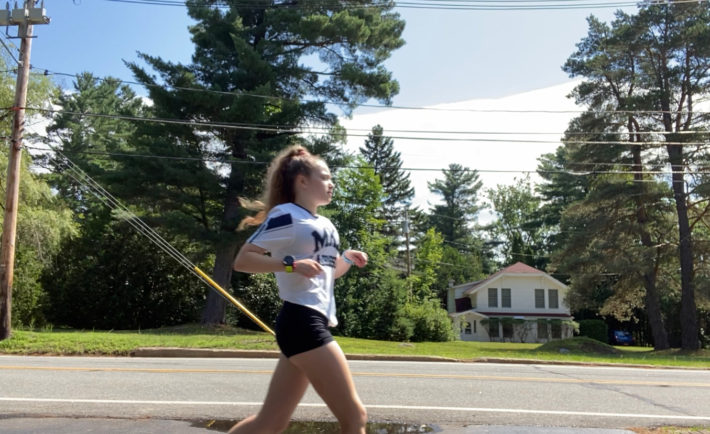By Emma Burd
Despite the current coronavirus pandemic forcing the majority of Americans into quarantine, some experts are still emphasizing the importance of getting outside each day. Studies show that activities such as running and walking have risen in popularity during lockdown, as they are two of the safest forms of outdoor exercise.
According to Allen Kim of CNN, there are several reasons that explain why running is gaining in popularity during the pandemic. Running is one of the few forms of exercise that requires no prior experience and very little equipment. It is also individualistic in nature, meaning that social distancing protocols can be easily adhered to while exercising.
Donald Marks, a clinical psychologist and Kean University’s director of clinical training, says that running involves much more mental strength than many people may expect.
“Exercise and exertion have a huge effect on neural development,” Marks said. “A lot of people don’t realize that just like you use your legs for running, you use your brain for running.”
In the same way that people use their brains for running, running also has many benefits for the brain. David J. Linden, Ph.D., of Johns Hopkins, says the euphoric feeling known as “runner’s high” is what attracts many people to try the sport in the first place. Linden claims that the feeling, however, is not directly linked with a rush of endorphins as many people think.
Instead, Linden says that the “runner’s high” feeling is associated with the increased release of endocannabinoids, biochemical substances produced naturally within the body during exercise. Unlike endorphins, endocannabinoids can easily cross through the barrier between the bloodstream and the brain, which is why the substance can impact mood.
Christina Bonarti, a rising junior in high school from Montclair, New Jersey, first began running three weeks after quarantine began.
“Running on my own was extremely difficult at the very beginning,” Bonarti admitted. “But it’s getting easier every day, so I’m doing everything I can to stick with it.”
As an avid hockey and lacrosse player who was forced to run laps as a punishment when her teams lost a game, Bonarti said she never thought she would choose to go running on her own. But when the coronavirus hit and her life and everyone else’s changed entirely, she decided to reassess her workout options – and she was not alone in doing so.

After realizing that the pandemic would mean a lockdown for a longer period of time, Bonarti knew that her sports, which required a full team of people, would be impossible to replicate remotely.
In addition to her physical health, Bonarti said she feels her mental health has improved with running, calling it an “incredible stress reliever.”
Bonarti is not alone in feeling stressed during the global pandemic. The percentages reported by the National Center for Biotechnology Information (NCBI) showed an increased number of people claiming to show signs of anxiety, depression, and insomnia as a result of coronavirus related news.
According to Alexa Sooter of Rockay, a fitness apparel brand that offers advice and health benefits for runners, people who run regularly are also known to sleep better. Sooter also said that longer term benefits of running include the growth of new blood vessels and brain cells, which may lower the chances of depression by dulling the brain’s physical and emotional stress receptors.
Christina Bonarti says she isn’t sure what her future holds with COVID-19 acting as a constant unknown. She has, however, made plans to continue her running. “I just started out, so it’s hard to know how much of a long term thing this is,” Bonarti said. “But I did decide to join my school’s cross country team, so my hope is that I will continue my running there if we do have a season.”
